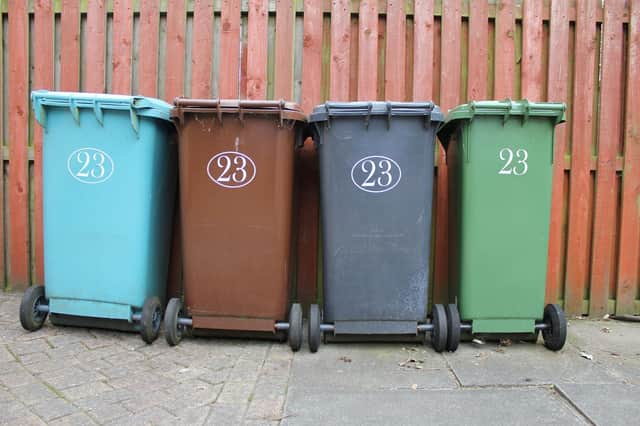Council proposes shake-up of kerbside recycling to cut costs


Proposed changes to the current kerbside recycling system will be discussed at the meeting of the Communities Committee on the September 26.
Members are being asked to agree the proposal, which is expected to save the council nearly half a million pounds, to bring the service into line with those of neighbouring local authorities and will increase the amount of waste we recycle, helping to mitigate against climate change by delivering our Transition to Net Zero Action Plan: 2022 to 2030; members will also be asked to agree to external funding to support the changes.
Advertisement
Advertisement
The proposal follows feedback from a Kerbside Recycling Service Survey which ran last November and December. Of the 2464 respondents, many were willing to support changes to how they recycle at home, if it meant saving substantial amounts of money that could be used to protect other vital council services. They also supported a ban on recyclable materials in the non-recyclable purple bin to help save money and increase recycling across Angus.
Angus has been in the top quartile of Scottish local authorities for household recycling rate since the current Kerbside Recycling Service was rolled out, and in 2015 and 2020 had the highest recycling rate in Scotland; in 2021 we were the fifth-highest performing authority. The proposals aim to sustain our reputation as one of the top performing councils in Scotland for recycling.
The proposed changes include:-
A new blue bin for all households for paper and cardboard - plastic bottles, containers and cans remain in the grey bin. The current system where mixed recyclable materials are placed in the grey bin is costly as all the materials require to be separated before they can be recycled, and there are limited suppliers who accept fully mixed recycling. Separating materials into two bins allows more cost effective processing. The two bins would be emptied on an alternate fortnight basis.
Non-recyclable (general) waste would continue to be collected every two weeks, and checks would be made for recyclable items placed in these bins. If a purple bin was found to have unacceptable levels of recyclable materials in it, the bin would be tagged and left unemptied until the recyclables are removed. Recyclables wrongly going in the purple bin costs the Council over £1 million per year.
Advertisement
Advertisement
Glass would no longer be collected at the kerbside and instead would be required to be taken to a Neighbourhood Recycling Point, which are expected to increase from 23 to in the region of 190.
In addition, more households would be provided with the food waste service. The current service would be extended to an additional 3900 households, meaning less waste going into the non-recyclable waste bin.
Councillor Mark McDonald, communities convener, said: “Our current system has served us well for many years. However, we now need to redesign our service in response to changing national policy and legislation.
“The way that we currently collect recyclables mixed in a single bin is relatively unique in Scotland. By bringing us closer in line with other councils’ collection systems we will increase the options for where we can send our recycling for sorting and deliver significant savings.
Advertisement
Advertisement
“By increasing the number of households provided with the food waste service and advising households we will no longer empty purple bins with unacceptable levels of recyclables in them, we hope to recycle more and significantly reduce our waste disposal costs.
“I recognise that not everyone will welcome the changes however they will ensure we can comply with future legislation and continue to deliver reliable and efficient kerbside recycling services.”
If agreed, the implementation of these proposed changes commence next March and would be completed by November, following an extensive campaign to communicate the changes to Angus residents.